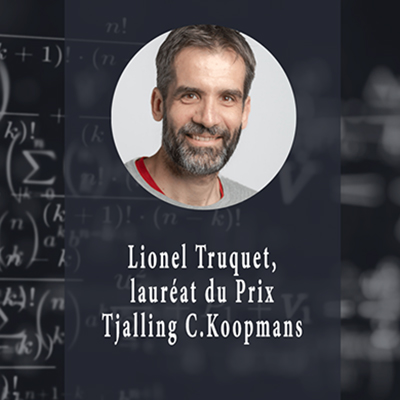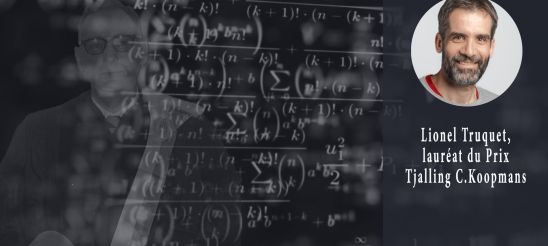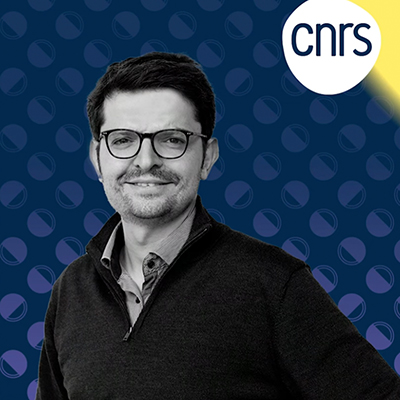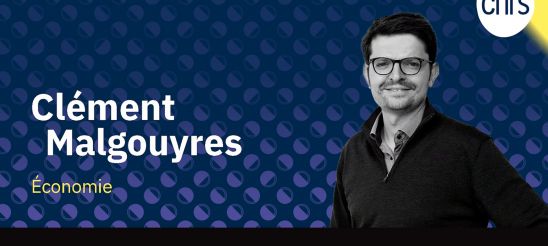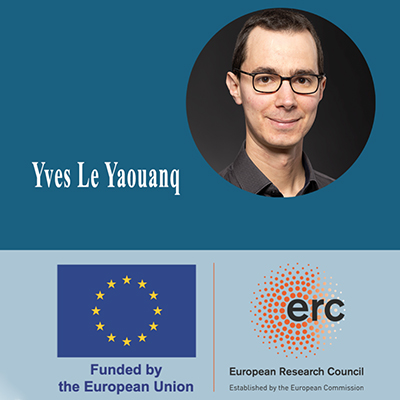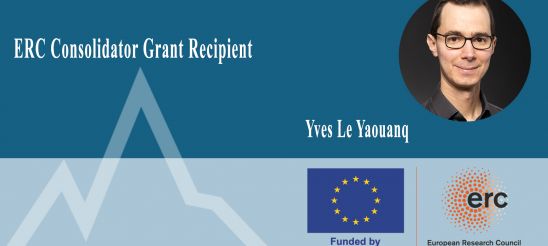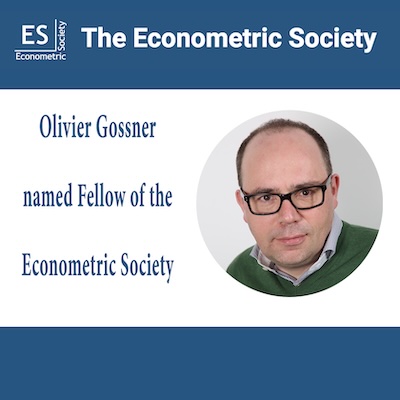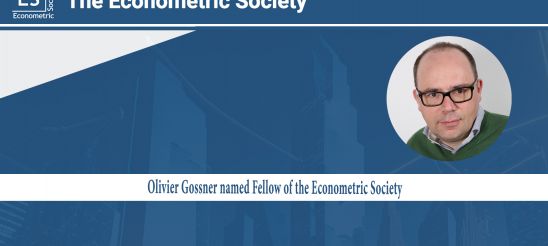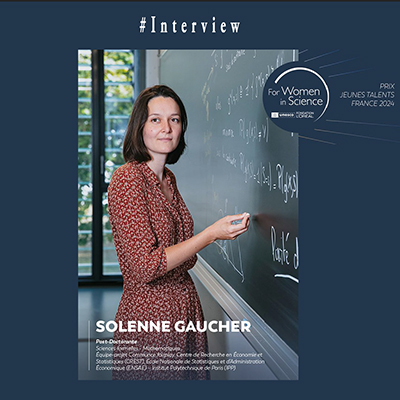Nous sommes heureux d’annoncer la nomination d’Emmanuelle Taugourdeau et de Pauline Rossi, toutes deux chercheuses au CREST, au sein du Conseil d’analyse économique (CAE). Cette reconnaissance illustre l’engagement du laboratoire dans le débat public et la production d’une recherche rigoureuse au service des politiques économiques.
Deux économistes reconnues
Emmanuelle Taugourdeau est directrice de recherche CNRS au CREST et professeure associée à l’École polytechnique. Spécialiste d’économie publique, ses travaux portent sur la fiscalité, les finances publiques locales et la compensation écologique. Elle est également directrice adjointe du CREST et Présidente du comité AFSE WinE (Women In Economics).
Pauline Rossi est professeure à l’École polytechnique et chercheuse au CREST. Elle travaille sur des sujets d’économie du développement, de démographie et d’économie de la famille. Lauréate d’un ERC Starting Grant, elle s’intéresse notamment à la prise de décision en matière de fécondité et aux politiques sociales dans les pays en développement.
Le Conseil d’analyse économique : un pont entre la recherche et la décision publique
Créé en 1997, le Conseil d’analyse économique est un organe placé auprès du Premier ministre. Il a pour mission de produire des analyses indépendantes, fondées sur la recherche scientifique, sur des sujets économiques d’intérêt public. Son rôle est de nourrir la décision publique grâce à des diagnostics rigoureux et accessibles, tout en participant activement aux débats économiques contemporains.
Le CAE publie des notes et rapports sur des thématiques variées : emploi, fiscalité, éducation, climat, inégalités, innovation, etc. Ses travaux sont consultables en ligne et largement relayés dans le débat public.
Être membre du CAE : une responsabilité scientifique et citoyenne
Les membres du CAE sont des économistes de haut niveau, issus du monde académique ou institutionnel. Leur rôle est de proposer des contributions éclairées, en lien avec leurs domaines d’expertise, en collaboration avec les autres membres du conseil. Ces travaux peuvent donner lieu à des recommandations concrètes à destination des pouvoirs publics.
Être nommé·e au CAE, c’est donc :
- Participer à l’élaboration des politiques économiques nationales,
- C à diffuser la recherche en économie dans le débat public,
- Défendre une approche scientifique, rigoureuse et pluraliste de l’analyse économique.
Une reconnaissance forte pour le CREST
Ces nominations sont une fierté pour le CREST, qui voit deux de ses chercheuses rejoindre une instance stratégique au plus haut niveau de l’État. Elles témoignent de la qualité scientifique de nos travaux, de leur pertinence pour les enjeux de société, et de notre contribution active au dialogue entre science et politique.
Lionel Truquet, lauréat du Prix Tjalling C.Koopmans
Lionel Truquet, lauréat du Prix Tjalling C.Koopmans
Portrait vidéo de Clément Malgouyres, chargé de recherche CNRS au CREST et médaille de bronze du CNRS
Portrait vidéo de Clément Malgouyres, chargé de recherche CNRS au CREST et médaille de bronze du CNRS
Portrait vidéo de Clément Malgouyres, chargé de recherche CNRS au CREST et médaille de bronze du CNRS
Portrait vidéo de Clément Malgouyres, chargé de recherche CNRS au CREST et médaille de bronze du CNRS
Yves Le Yaouanq: Recipient of an ERC Consolidator Grant in Economics
In this latest edition of CRESTive Minds, we are proud to feature Yves Le Yaouanq, researcher at CREST-Ecole polytechnique, a recent recipient of the prestigious ERC Consolidator Grant for his PROSPECT project. Specializing in behavioral economics, Yves explores the cognitive biases that shape human decision-making, with a focus on prospective learning and dynamic choice.
In this interview, he shares insights into his academic journey, the inspirations behind his research, and the challenges of designing experiments that bridge theory and real-world application.
Join us as we delve into the innovative work that earned Yves this remarkable recognition.
Academic Journey
Question: Could you tell us about your academic journey and what led you to specialize in behavioral economics?

I began a doctorate at the Toulouse School of Economics focusing on environmental economics topics related to climate policies. This literature often approaches the problem from a normative angle (what is the best way to make the ecological transition?), but I was quickly drawn to a more descriptive question: why do we do so little? This was in the early 2010s, at a time when climate denial was still quite present in our societies. This questioning led me to discover the work of psychologists, as well as economists, on the subject of belief biases and their social implications. I found these subjects fascinating because they mobilize a very broad spectrum of methods: psychological intuition (even introspection), modeling, then experimentation and quantification. I then continued my work in this literature throughout my career, at the University of Munich after my thesis, and at CREST since 2021, while keeping an eye on topics in political economy.
Which experiences or encounters particularly influenced your research choices?
I was particularly influenced by my encounter with Roland Bénabou (Princeton University) and Jean Tirole (Toulouse School of Economics), who both supervised me during my thesis, and by reading their work. They were among the first to show how economic tools, like game theory, could help us better think about objects that we rarely associate with economists’ work, such as emotions: anxiety, desire for recognition, regret… Roland Bénabou and Jean Tirole played an essential role in showing a whole generation of economists, including myself, that these subjects were not only legitimate and important for our discipline, but that we also had, like psychologists, important assets to help us better understand them.
Notable Works
Your research ften relies on models and experiments. What challenges do you encounter in designing these experiments?
There are logistical and practical challenges that shouldn’t be underestimated, for example, ensuring that instructions are clear enough for participants while being concise. But the main challenge concerns the articulation between theory and experiment. I think that any good experiment teaches us something important about an economic model, whether that model has been explicitly formulated or is implicitly present in researchers’ minds. The main challenge of an experiment is knowing which aspect of a model we want to test, and ensuring that the protocol fulfills this objective. This requires anticipating all alternative interpretations of the results, and perfecting the experimental protocol until as many of these alternatives as possible have been eliminated.
Another issue I consider very important is the external validity of experiments. We must always question to what extent results obtained in an experimental setting can be generalized outside the laboratory. This is an essential but uncomfortable question because nothing allows us to answer it, except our efforts to ensure that the experiment isn’t too artificial and remains close to real-life situations we are interested in. This is one of the reasons why a large part of my methodological work consists of developing protocols that detect belief and learning biases on natural objects, like the outcome of an upcoming election, rather than using artificial tools as the literature tends to do (for example, urns filled with balls). The article Learning about one’s self, co-authored with Peter Schwardmann (Carnegie Mellon University) when we were colleagues at the University of Munich, is an example of such methodological work.
The PROSPECT Project
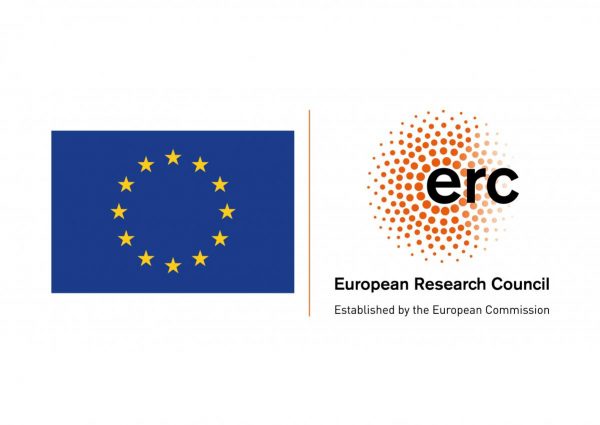
Where did the idea for PROSPECT come from, and what current gaps in the literature do you hope to fill with this project?
The idea comes from the article I just mentioned. Most work in economics and psychology on belief biases deals with retrospective learning, that is, our ability to use information that has already realized. We know, for example, that individuals tend to ignore some valuable pieces of information, and to overweight others. While writing our article, Peter and I realized that the experimental methodology we had developed allowed us to study something new in this literature: prospective learning, that is, the ability to predict the value of information that has not yet been revealed.
This cognitive process might seem abstract, but we engage in it constantly. When we decide to read a book to learn something, we do so because we think the book contains important information – without knowing the exact nature of that information in advance, of course, otherwise we wouldn’t need to read the book! The same applies when we research house prices before buying one, read press articles about bitcoin to know if it’s still time to buy, or when we simply ask a question to our office neighbor. This process is therefore essential because it determines the quantity and type of information we voluntarily acquire. However, it has never been empirically evaluated. The objective of PROSPECT (Biases in prospective learning and dynamic choice) is to fill this gap, and to measure whether we are capable of making these types of predictions correctly, or if we are affected by systematic cognitive biases such as a tendency to underestimate the value of information we don’t yet have.

Which biases in prospective learning and dynamic decision-making do you find particularly intriguing or under-explored?
I have the intuition that we don’t experiment enough, in both our professional and personal lives. By “experimentation,” I mean any approach that consists of forcing ourselves to try different things hoping to find something “better” than the status quo.
Many anecdotes, particularly in arts and sciences, suggest that constrained experimentation can be beneficial. My favorite concerns jazz pianist Keith Jarrett, who, in 1975 in Cologne, played before thousands of people on a defective piano. This constraint forced him to use a restricted range to avoid the damaged parts of the instrument, and to show more creativity, particularly rhythmically, to compensate. This concert and the subsequent record were hugely successful. This raises the question of why such a talented pianist, so versed in the art of improvisation, had to wait until a strong constraint was imposed on him to release this additional creativity.
My hypothesis is that we generally tend to underestimate the benefits of experimentation, and therefore we engage in it insufficiently when we’re not constrained to do so. If this is the case, and if PROSPECT demonstrates it, we will then need to think about the means at our disposal to encourage more innovation efforts, both by individuals and within organizations.
Impact
How could your work on belief biases or self-learning be used to improve decisions in finance, politics, or other domains?
I’ll respond at a general level regarding belief biases and self-learning. First, I think the main beneficiaries of this research are individuals themselves: when we are informed about the main belief biases, we’re better equipped to detect them, in others but also in ourselves, and try to correct them to make better decisions. An important application in economic literature concerns the beliefs we form about our own future behaviors, in areas as varied as personal finance (consumption and saving behavior) or health (addictions, exercising habits…). These beliefs are often too optimistic, and simply knowing this encourages more introspection and measure when making decisions that commit us long-term (for example, taking on too much debt).
In the political domain, it is in my view a very complicated question. We know that societies are increasingly fracturing under the effect of social networks and “fake news,” and that it has become difficult to get different partisan groups to admit common factual truths. This is a major fact of contemporary Western democracies. The diagnosis is clear, but the remedies much less so. In my opinion, the most promising work in this area studies light, non-coercive interventions that respect the fundamental principle of free flow of information, aimed at encouraging introspection and a certain skepticism towards information among social media users. In the longer term, education programs aimed at promoting critical thinking and resistance to manipulation seem essential. In both cases, a good understanding of the underlying cognitive biases is useful for thinking about the most effective interventions and those least likely to create undesirable side effects.
Guidance
What advantages do you see in collaborating with neighboring disciplines like psychology or behavioral sciences?
We often deal with similar topics, but with different methods. It seems important for a behavioral economist to have a certain general knowledge of the disciplines you mention, to avoid rediscovering things already known. Reading work in other disciplines can also give innovative research ideas. While collaborations between economists and psychologists remain relatively rare, there is a long tradition of dialogue between the two disciplines, as shown by the major influence of Daniel Kahneman and Amos Tversky’s work (two psychologists) on economic research. The book by Kahneman, Thinking, Fast, and Slow, summarizes their joint work.
Is there an error or challenge you encountered in your career that has profoundly marked your approach to research today?
I long made the mistake of underestimating how long research projects take. I still make this mistake despite my own work on over-optimism (it’s a surprisingly robust bias!), but to a lesser extent. Seriously embarking on a research project is, in the vast majority of cases, committing to spending several years of work on it. For this reason, I think it is essential, when choosing a project, to give a lot of importance to what psychologists call “intrinsic motivation”: the meaning the project has in our eyes, the importance we attach to its results, the pleasure we take in working on it daily. Abundant evidence in psychology (some of it summarized in a classic book from 1985 by Edward L. Deci and Richard Ryan, Intrinsic Motivation and Self-Determination in Human Behavior) shows that this is a much healthier and more sustainable driver than its alternative, “extrinsic motivation,” which lies in the hope of external rewards.
Yves Le Yaouanq’s work exemplifies how behavioral economics can address some of today’s most pressing challenges, from understanding cognitive biases to improving decision-making in finance, politics, and beyond. His recent ERC Consolidator Grant for the PROSPECT project highlights the innovative nature of his research, further strengthening CREST’s reputation for excellence. Yves now joins the six other ERC projects currently held at CREST, contributing to a vibrant community of researchers tackling critical questions across economics, sociology, finance, and statistics. His journey is paving the way for new approaches to understanding human behavior and its societal implications.
Find out more about Yves’ project:
Polytechnique : https://www.polytechnique.edu/actualites/yves-le-yaouanq-recoit-une-bourse-erc-pour-etudier-les-biais-cognitifs
Yves Le Yaouanq: Recipient of an ERC Consolidator Grant in Economics
In this latest edition of CRESTive Minds, we are proud to feature Yves Le Yaouanq, researcher at CREST-Ecole polytechnique, a recent recipient of the prestigious ERC Consolidator Grant for his PROSPECT project. Specializing in behavioral economics, Yves explores the cognitive biases that shape human decision-making, with a focus on prospective learning and dynamic choice.
In this interview, he shares insights into his academic journey, the inspirations behind his research, and the challenges of designing experiments that bridge theory and real-world application.
Join us as we delve into the innovative work that earned Yves this remarkable recognition.
Academic Journey
Question: Could you tell us about your academic journey and what led you to specialize in behavioral economics?

I began a doctorate at the Toulouse School of Economics focusing on environmental economics topics related to climate policies. This literature often approaches the problem from a normative angle (what is the best way to make the ecological transition?), but I was quickly drawn to a more descriptive question: why do we do so little? This was in the early 2010s, at a time when climate denial was still quite present in our societies. This questioning led me to discover the work of psychologists, as well as economists, on the subject of belief biases and their social implications. I found these subjects fascinating because they mobilize a very broad spectrum of methods: psychological intuition (even introspection), modeling, then experimentation and quantification. I then continued my work in this literature throughout my career, at the University of Munich after my thesis, and at CREST since 2021, while keeping an eye on topics in political economy.
Which experiences or encounters particularly influenced your research choices?
I was particularly influenced by my encounter with Roland Bénabou (Princeton University) and Jean Tirole (Toulouse School of Economics), who both supervised me during my thesis, and by reading their work. They were among the first to show how economic tools, like game theory, could help us better think about objects that we rarely associate with economists’ work, such as emotions: anxiety, desire for recognition, regret… Roland Bénabou and Jean Tirole played an essential role in showing a whole generation of economists, including myself, that these subjects were not only legitimate and important for our discipline, but that we also had, like psychologists, important assets to help us better understand them.
Notable Works
Your research ften relies on models and experiments. What challenges do you encounter in designing these experiments?
There are logistical and practical challenges that shouldn’t be underestimated, for example, ensuring that instructions are clear enough for participants while being concise. But the main challenge concerns the articulation between theory and experiment. I think that any good experiment teaches us something important about an economic model, whether that model has been explicitly formulated or is implicitly present in researchers’ minds. The main challenge of an experiment is knowing which aspect of a model we want to test, and ensuring that the protocol fulfills this objective. This requires anticipating all alternative interpretations of the results, and perfecting the experimental protocol until as many of these alternatives as possible have been eliminated.
Another issue I consider very important is the external validity of experiments. We must always question to what extent results obtained in an experimental setting can be generalized outside the laboratory. This is an essential but uncomfortable question because nothing allows us to answer it, except our efforts to ensure that the experiment isn’t too artificial and remains close to real-life situations we are interested in. This is one of the reasons why a large part of my methodological work consists of developing protocols that detect belief and learning biases on natural objects, like the outcome of an upcoming election, rather than using artificial tools as the literature tends to do (for example, urns filled with balls). The article Learning about one’s self, co-authored with Peter Schwardmann (Carnegie Mellon University) when we were colleagues at the University of Munich, is an example of such methodological work.
The PROSPECT Project

Where did the idea for PROSPECT come from, and what current gaps in the literature do you hope to fill with this project?
The idea comes from the article I just mentioned. Most work in economics and psychology on belief biases deals with retrospective learning, that is, our ability to use information that has already realized. We know, for example, that individuals tend to ignore some valuable pieces of information, and to overweight others. While writing our article, Peter and I realized that the experimental methodology we had developed allowed us to study something new in this literature: prospective learning, that is, the ability to predict the value of information that has not yet been revealed.
This cognitive process might seem abstract, but we engage in it constantly. When we decide to read a book to learn something, we do so because we think the book contains important information – without knowing the exact nature of that information in advance, of course, otherwise we wouldn’t need to read the book! The same applies when we research house prices before buying one, read press articles about bitcoin to know if it’s still time to buy, or when we simply ask a question to our office neighbor. This process is therefore essential because it determines the quantity and type of information we voluntarily acquire. However, it has never been empirically evaluated. The objective of PROSPECT (Biases in prospective learning and dynamic choice) is to fill this gap, and to measure whether we are capable of making these types of predictions correctly, or if we are affected by systematic cognitive biases such as a tendency to underestimate the value of information we don’t yet have.

Which biases in prospective learning and dynamic decision-making do you find particularly intriguing or under-explored?
I have the intuition that we don’t experiment enough, in both our professional and personal lives. By “experimentation,” I mean any approach that consists of forcing ourselves to try different things hoping to find something “better” than the status quo.
Many anecdotes, particularly in arts and sciences, suggest that constrained experimentation can be beneficial. My favorite concerns jazz pianist Keith Jarrett, who, in 1975 in Cologne, played before thousands of people on a defective piano. This constraint forced him to use a restricted range to avoid the damaged parts of the instrument, and to show more creativity, particularly rhythmically, to compensate. This concert and the subsequent record were hugely successful. This raises the question of why such a talented pianist, so versed in the art of improvisation, had to wait until a strong constraint was imposed on him to release this additional creativity.
My hypothesis is that we generally tend to underestimate the benefits of experimentation, and therefore we engage in it insufficiently when we’re not constrained to do so. If this is the case, and if PROSPECT demonstrates it, we will then need to think about the means at our disposal to encourage more innovation efforts, both by individuals and within organizations.
Impact
How could your work on belief biases or self-learning be used to improve decisions in finance, politics, or other domains?
I’ll respond at a general level regarding belief biases and self-learning. First, I think the main beneficiaries of this research are individuals themselves: when we are informed about the main belief biases, we’re better equipped to detect them, in others but also in ourselves, and try to correct them to make better decisions. An important application in economic literature concerns the beliefs we form about our own future behaviors, in areas as varied as personal finance (consumption and saving behavior) or health (addictions, exercising habits…). These beliefs are often too optimistic, and simply knowing this encourages more introspection and measure when making decisions that commit us long-term (for example, taking on too much debt).
In the political domain, it is in my view a very complicated question. We know that societies are increasingly fracturing under the effect of social networks and “fake news,” and that it has become difficult to get different partisan groups to admit common factual truths. This is a major fact of contemporary Western democracies. The diagnosis is clear, but the remedies much less so. In my opinion, the most promising work in this area studies light, non-coercive interventions that respect the fundamental principle of free flow of information, aimed at encouraging introspection and a certain skepticism towards information among social media users. In the longer term, education programs aimed at promoting critical thinking and resistance to manipulation seem essential. In both cases, a good understanding of the underlying cognitive biases is useful for thinking about the most effective interventions and those least likely to create undesirable side effects.
Guidance
What advantages do you see in collaborating with neighboring disciplines like psychology or behavioral sciences?
We often deal with similar topics, but with different methods. It seems important for a behavioral economist to have a certain general knowledge of the disciplines you mention, to avoid rediscovering things already known. Reading work in other disciplines can also give innovative research ideas. While collaborations between economists and psychologists remain relatively rare, there is a long tradition of dialogue between the two disciplines, as shown by the major influence of Daniel Kahneman and Amos Tversky’s work (two psychologists) on economic research. The book by Kahneman, Thinking, Fast, and Slow, summarizes their joint work.
Is there an error or challenge you encountered in your career that has profoundly marked your approach to research today?
I long made the mistake of underestimating how long research projects take. I still make this mistake despite my own work on over-optimism (it’s a surprisingly robust bias!), but to a lesser extent. Seriously embarking on a research project is, in the vast majority of cases, committing to spending several years of work on it. For this reason, I think it is essential, when choosing a project, to give a lot of importance to what psychologists call “intrinsic motivation”: the meaning the project has in our eyes, the importance we attach to its results, the pleasure we take in working on it daily. Abundant evidence in psychology (some of it summarized in a classic book from 1985 by Edward L. Deci and Richard Ryan, Intrinsic Motivation and Self-Determination in Human Behavior) shows that this is a much healthier and more sustainable driver than its alternative, “extrinsic motivation,” which lies in the hope of external rewards.
Yves Le Yaouanq’s work exemplifies how behavioral economics can address some of today’s most pressing challenges, from understanding cognitive biases to improving decision-making in finance, politics, and beyond. His recent ERC Consolidator Grant for the PROSPECT project highlights the innovative nature of his research, further strengthening CREST’s reputation for excellence. Yves now joins the six other ERC projects currently held at CREST, contributing to a vibrant community of researchers tackling critical questions across economics, sociology, finance, and statistics. His journey is paving the way for new approaches to understanding human behavior and its societal implications.
Find out more about Yves’ project:
Polytechnique : https://www.polytechnique.edu/actualites/yves-le-yaouanq-recoit-une-bourse-erc-pour-etudier-les-biais-cognitifs
Olivier Gossner Named Fellow of the Econometric Society
Olivier Gossner: A Leading Specialist in Game Theory

Olivier Gossner is a prominent scholar at the intersection of economics and mathematics, renowned for his expertise in game theory. His research focuses on repeated games, the strategic use of information, and bounded rationality, exploring how individuals and institutions make decisions under uncertainty.
In his recent work, Gossner has introduced innovative models of strategic reasoning and proposed a significant reform to the Solvency II regulation, advocating for a reallocation of insurance capital towards the productive economy. His contributions aim to reshape how financial systems can better support economic growth.
Gossner holds multiple prestigious titles, including Fellow of the Game Theory Society, where he also serves as the Vice President for Communications, and now, Fellow of the Econometric Society. In recognition of his groundbreaking research, he was awarded an ERC advanced grant from the European Commission for his SInfoNiA project, which further advanced strategic information theory in economics.
Overview of The Econometric Society
Founded in 1930, the Econometric Society is one of the most prestigious academic societies in the world, bringing together leading economists and statisticians. Its mission is to advance economic theory in its relation to statistics and mathematics. The Society is known for its rigorous standards, and membership includes many of the most influential thinkers in economics over the past century.
The Econometric Society organizes major conferences around the world and publishes three of the field’s top journals: Econometrica, Quantitative Economics, and Theoretical Economics. Its influence extends across academic circles and into the policy-making world, where insights from its members shape major economic decisions globally.
What It Means to Be a Fellow of the Econometric Society
Becoming a Fellow of the Econometric Society is one of the highest honors in the field of economics. Each year, the Society recognizes a select group of economists whose research has made a profound impact on the field. The nomination process is highly competitive, and Fellows are selected based on their body of work, their contributions to advancing economic knowledge, and their influence on the academic community.
For Olivier Gossner, this fellowship represents a crowning achievement in a career already full of significant milestones. It places him in a distinguished group of scholars who have shaped modern economic theory and practice, and it recognizes his contributions to game theory and decision-making processes.
CREST and The Econometric Society
CREST (Center for Research in Economics and Statistics) maintains a significant relationship with the Econometric Society, with its researchers contributing to some of the field’s most prestigious journals. CREST researchers have published 8 papers in Econometrica, including key works like “Consistent Pseudo-Maximum Likelihood Estimator and Group Transformation” by G. Gourieroux, A. Monfort, and J.M. Zakoian, as well as Yves Le Yaouanq’s research, “Dual-self Representations of Ambiguity Preferences.”
In Quantitative Economics, CREST has published 5 papers, with notable studies such as “The Provision of Wage Incentives: A Structural Estimation Using Contracts Variation” by D’Haultfoeuille and Février, and “Inequality and Earnings Dynamics in France: National Policies and Local Consequences” by F. Kramarz, E. Nimier-David, and T. Delemotte.
The lab’s contributions extend to Theoretical Economics as well, with Olivier Loisel’s work on “The Implementation of Stabilization Policy” and Kikuchi and Koriyama’s research on “The Winner-Take-All Dilemma.”
CREST’s consistent publications in these prestigious journals reflect its prominent role in advancing economic research and theory on a global scale.
Olivier Gossner Named Fellow of the Econometric Society
Olivier Gossner: A Leading Specialist in Game Theory

Olivier Gossner is a prominent scholar at the intersection of economics and mathematics, renowned for his expertise in game theory. His research focuses on repeated games, the strategic use of information, and bounded rationality, exploring how individuals and institutions make decisions under uncertainty.
In his recent work, Gossner has introduced innovative models of strategic reasoning and proposed a significant reform to the Solvency II regulation, advocating for a reallocation of insurance capital towards the productive economy. His contributions aim to reshape how financial systems can better support economic growth.
Gossner holds multiple prestigious titles, including Fellow of the Game Theory Society, where he also serves as the Vice President for Communications, and now, Fellow of the Econometric Society. In recognition of his groundbreaking research, he was awarded an ERC advanced grant from the European Commission for his SInfoNiA project, which further advanced strategic information theory in economics.
Overview of The Econometric Society
Founded in 1930, the Econometric Society is one of the most prestigious academic societies in the world, bringing together leading economists and statisticians. Its mission is to advance economic theory in its relation to statistics and mathematics. The Society is known for its rigorous standards, and membership includes many of the most influential thinkers in economics over the past century.
The Econometric Society organizes major conferences around the world and publishes three of the field’s top journals: Econometrica, Quantitative Economics, and Theoretical Economics. Its influence extends across academic circles and into the policy-making world, where insights from its members shape major economic decisions globally.
What It Means to Be a Fellow of the Econometric Society
Becoming a Fellow of the Econometric Society is one of the highest honors in the field of economics. Each year, the Society recognizes a select group of economists whose research has made a profound impact on the field. The nomination process is highly competitive, and Fellows are selected based on their body of work, their contributions to advancing economic knowledge, and their influence on the academic community.
For Olivier Gossner, this fellowship represents a crowning achievement in a career already full of significant milestones. It places him in a distinguished group of scholars who have shaped modern economic theory and practice, and it recognizes his contributions to game theory and decision-making processes.
CREST and The Econometric Society
CREST (Center for Research in Economics and Statistics) maintains a significant relationship with the Econometric Society, with its researchers contributing to some of the field’s most prestigious journals. CREST researchers have published 8 papers in Econometrica, including key works like “Consistent Pseudo-Maximum Likelihood Estimator and Group Transformation” by G. Gourieroux, A. Monfort, and J.M. Zakoian, as well as Yves Le Yaouanq’s research, “Dual-self Representations of Ambiguity Preferences.”
In Quantitative Economics, CREST has published 5 papers, with notable studies such as “The Provision of Wage Incentives: A Structural Estimation Using Contracts Variation” by D’Haultfoeuille and Février, and “Inequality and Earnings Dynamics in France: National Policies and Local Consequences” by F. Kramarz, E. Nimier-David, and T. Delemotte.
The lab’s contributions extend to Theoretical Economics as well, with Olivier Loisel’s work on “The Implementation of Stabilization Policy” and Kikuchi and Koriyama’s research on “The Winner-Take-All Dilemma.”
CREST’s consistent publications in these prestigious journals reflect its prominent role in advancing economic research and theory on a global scale.
Interview – Solenne Gaucher, lauréate 2024 du prix L’Oréal Unesco pour les femmes et la science
Solenne Gaucher, post-doctorante statisticienne, au CREST-GENES a récemment obtenu le prestigieux prix L’Oréal Unesco pour les femmes et la science. Elle s’intéresse principalement à l’apprentissage séquentiel et aux problèmes de décision séquentielle, ainsi qu’à l’apprentissage automatique équitable.
Au sein du CREST, Solenne travaille avec Vianney Perchet, chercheur en statistique et enseignant à l’ENSAE Paris sur le projet FairPlay, en partenariat avec l’INRIA.
Nous avons saisi l’occasion de ce prix pour en savoir un peu plus sur Solenne, son parcours et son travail au CREST.
Félicitations pour ce prix prestigieux ! Que représente pour vous le fait de recevoir le prix L’Oréal Unesco pour les femmes et la science ?
Je suis profondément honorée de recevoir ce prix, décerné par un jury aussi prestigieux. Au-delà de la reconnaissance de mes travaux, ce prix s’accompagne d’une responsabilité que je prends à cœur. En tant qu’ambassadrice de la Fondation L’Oréal-Unesco pour les Femmes et la Science, je souhaite soutenir activement sa mission : promouvoir une plus grande inclusion des femmes dans le domaine scientifique, qui est un enjeu fondamental pour l’égalité des genres.
A votre avis, quelles sont les raisons de la sous-représentation des femmes en science, et quel impact une meilleure représentativité pourrait-elle avoir ?
Le nombre de femmes dans les domaines scientifiques reste alarmant. En France, elles ne représentent que 29% des chercheurs en sciences, et cette proportion chute encore davantage dans des disciplines comme les mathématiques, où seulement 22% des enseignantes-chercheuses à l’université sont des femmes. Ces chiffres, bien qu’ils reflètent la faible présence des femmes dans les filières scientifiques, en sont également une des causes.
Je suis convaincue que le manque de modèles féminins visibles dans l’enseignement supérieur peut freiner les ambitions des étudiantes, les poussant à douter de leur légitimité. A cela s’ajoutent d’autres facteurs :
- Un soutien insuffisant de l’entourage pour s’engager dans des carrières scientifiques ;
- Un sentiment d’illégitimité dans un environnement perçu comme très masculin ;
- Une aversion plus marquée pour la compétition, qui peut éloigner certaines jeunes femmes de filières considérées comme élitistes.
Cette situation est préoccupante, car elle freine l’égalité des genres dans notre société. Les études scientifiques ouvrent les portes à des carrières parmi les plus prestigieuses et les mieux rémunérées. Pour y remédier, il est indispensable de mener des actions ciblées tout au long du parcours des jeunes femmes, dès la petite enfance, en luttant contre les stéréotypes de genre, et jusqu’aux études supérieures, en les conseillant sur leur orientation et en les encourageant activement à se tourner vers des carrières scientifiques.
Comment pensez-vous que ce prix influencera votre carrière et vos projets de recherche futurs ?
En tant que jeune chercheuse, ce prix apporte à la fois une reconnaissance et une visibilité précieuse à mes travaux. Plus matériellement, ce prix conséquent me donne une certaine indépendance financière, et me permettra notamment de financer un séjour de recherche à l’étranger, de voyager pour présenter mes travaux et nouer des collaborations avec des chercheurs de divers horizons. Ce prix ouvre donc de nouvelles perspectives pour mes projets de recherche.
Vous avez obtenu ce prix dans le cadre de votre travail sur l’équité algorithmique. Pouvez-vous nous présenter ces travaux ?
Mes travaux portent sur les enjeux d’équité dans les algorithmes d’apprentissage automatique, ou machine learning. Pour comprendre pourquoi ces algorithmes peuvent produire des réponses biaisées, il est essentiel de comprendre leur fonctionnement : ils apprennent à partir de larges jeux de données à repérer des relations entre différents éléments décrits par ces données. Par exemple, un logiciel de génération de texte associe certains mots à des contextes spécifiques et reproduit ces associations dans ses réponses.
Cependant, si les données d’entraînement contiennent des biais, les algorithmes risquent de les reproduire, voire de les accentuer. Par exemple, des journalistes de Reuters ont rapporté qu’un algorithmes de recrutement d’ingénieurs, entraîné sur des données historiques de recrutement, reproduisait les biais présents dans les données en discriminant les candidatures féminines. De tels cas illustrent un consensus croissant parmi les scientifiques : les algorithmes de machine learning, lorsqu’ils sont formés sur des données biaisées, peuvent perpétuer ou aggraver les discriminations déjà présentes.
Mes recherches visent à mesurer et prévenir les discriminations des algorithmes. La complexité du sujet dépasse son aspect purement mathématique : une décision juste dans un contexte peut sembler injuste dans un autre, ce qui nécessité de développer différentes approches complémentaires. A court terme, le souhaite étudier certains critères d’équité spécifiques, et en particulier comprendre les conséquences de ces contraintes, et comment les intégrer dans les algorithmes. A long terme, mes recherches visent à contribuer à l’élaboration d’un boîte à outils documentée d’algorithmes équitables. Celle-ci fournirait aux décideurs des méthodes pratiques pour mettre en œuvre tel ou tel critère tout en expliquant les conséquences et les effets néfastes potentiels de ces choix.
Pouvez-vous nous expliquer ce qui vous a motivé à explorer le domaine de l’équité dans les algorithmes d’intelligence artificielle ?
Ce domaine de recherche présente deux intérêts majeurs à mes yeux. D’une part, il permet de répondre à un problème ayant un impact sociétal significatif, où les mathématiciens et mathématiciennes ont un rôle clé à jouer. D’autre part, il s’agit d’un champ de recherche émergeant et particulièrement dynamique. De nombreuses questions fondamentales restent ouvertes, et ce domaine présente des défis mathématiques vraiment captivants.
Qu’est-ce qui vous a poussé à choisir une carrière de chercheuse en statistiques et en mathématiques appliquées ?
J’ai choisi de faire une carrière scientifique par passion pour les mathématiques. Je n’avais pas de métier précis en tête en commençant mes études, et pas d’autre but en tête que celui de continuer à pratiquer des sciences. Je ne visais pas un métier en particulier, mais je savais que ces études m’ouvraient de nombreuses portes. J’ai suivi, à chaque choix d’orientation, la voie qui me permettait de continuer à faire des mathématiques, qui me plaisaient particulièrement. J’ai donc assez naturellement fait un master de recherche, qui m’a conduit à faire une thèse.
J’aime particulièrement la liberté que le métier de chercheuse m’offre. En premier lieu, la liberté de travailler sur les problèmes qui m’intéressent, et de continuer à apprendre de nouvelles techniques, à découvrir de nouveaux sujets. Et, bien sûr, la liberté de choisir avec qui travailler. C’est aussi un métier qui procure un vrai plaisir intellectuel : celui de modéliser un problème réel en termes mathématiques, de réfléchir et de raisonner, de comprendre !
L’enseignement est également une partie de ce métier que je trouve vraiment gratifiante, car elle permet de mesurer immédiatement l’impact de son travail, à travers les progrès visibles de ses élèves.


